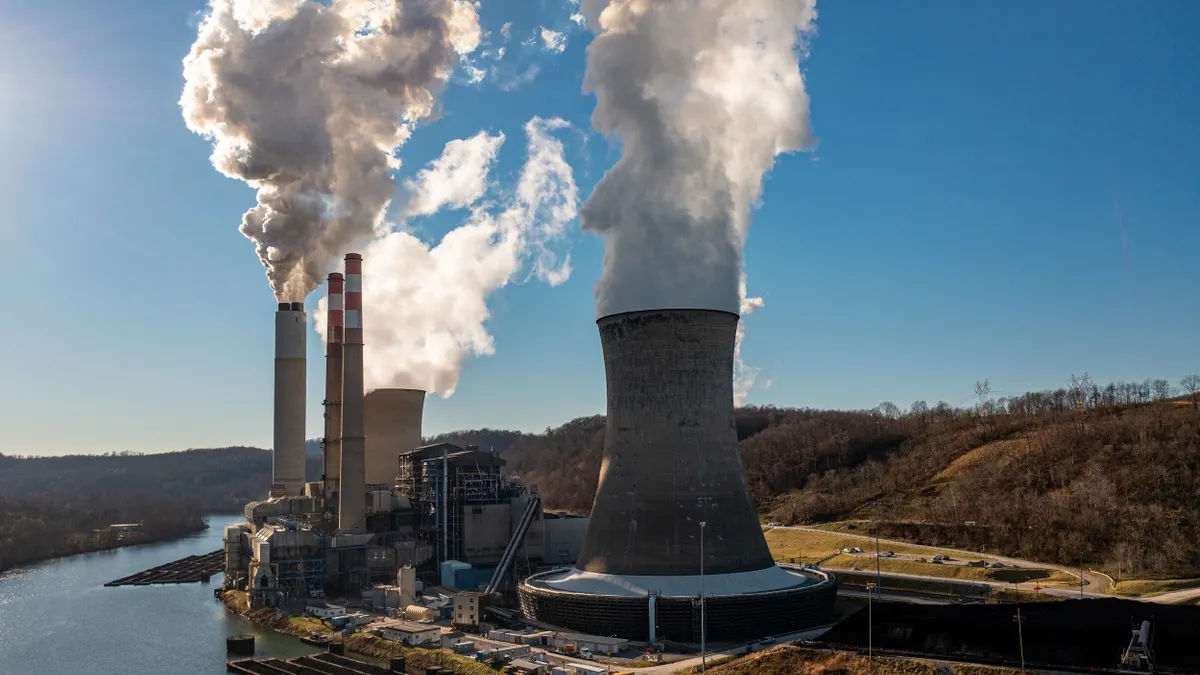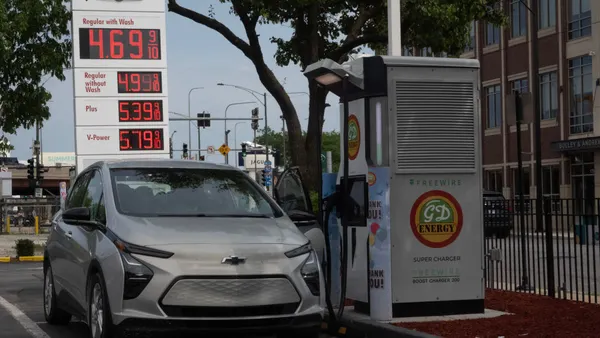Dive Brief:
-
The U.S. Environmental Protection Agency on Tuesday proposed rescinding the 2009 “endangerment finding,” which concluded that emissions of six greenhouse gases endanger human health and welfare. Previous presidential administrations used the finding to regulate greenhouse gases under the Clean Air Act.
-
The EPA said in a press release that if the proposal is finalized, it “is expected to save Americans $54 billion in costs annually through “the repeal of all greenhouse gas standards.”
-
Rescinding federal authority to regulate greenhouse gas emissions from stationary sources like power plants would likely give states more leeway in regulating them, said Amy Turner, director of the Cities Climate Law Initiative at Columbia Law School’s Sabin Center. “It’s possible that in some states we’ll see the state meeting the moment and regulating power plants more robustly. But in some states, we will not. There’s the potential to have a real patchwork of how power plants are regulated.”
Dive Insight:
In 2007, the Supreme Court ruled the EPA must regulate greenhouse gas emissions under the Clean Air Act if it determined the emissions endanger public health and welfare. In 2009, the EPA made that determination for the combination of six greenhouse gases — carbon dioxide, methane, nitrous oxide, hydrofluorocarbons and sulfur hexafluoride — noting that “the body of scientific evidence compellingly supports this finding.” It used the finding and the Supreme Court ruling to justify greenhouse gas regulation.
By rescinding this finding, “EPA thinks it has discovered this one neat trick to eliminate all climate regulations,” Meredith Hankins, senior attorney, climate and energy, for the Natural Resources Defense Council, said during a press conference Tuesday.
Yesterday’s announcement kicks off a formal rulemaking process with a 45-day period when cities and other stakeholders will be able to comment before the EPA finalizes and publishes the proposed rule, Turner said. “Then there is the opportunity for stakeholders to challenge the rule in court, as is certain to happen in this instance.”
The EPA’s press release said rescinding the finding will “give power back to the states to make their own decisions” about greenhouse gas regulations. Some states delegate some of that authority to local governments, Turner said.
The administration has signaled a desire to block state and local regulation of power plant emissions as well, however. In April, President Donald Trump signed an executive order directing Attorney General Pam Bondi to identify all state and local laws and regulations “burdening the identification, development, siting, production, or use of domestic energy resources that are or may be unconstitutional, preempted by Federal law, or otherwise unenforceable” and submit a report within 60 days.
That report, if it exists, has not been made public, Turner said. But it indicates “an appetite from the federal government to go after local governments for climate policies.”
Turner advised city attorneys to take an inventory of their jurisdictions’ climate-related policies and assess the challenges that could be made against them. She said she’s hesitant to advise cities to put a lot of resources into that yet, however, because “so many other things are happening.”
“There’s just so much coming at them, and I think all of this is part and parcel of a bigger story between the administration and cities,” she said.
Climate Mayors’ leadership said in a joint statement Tuesday that the regulations created in response to the endangerment finding “have resulted in better air quality in communities across the country and are central to America’s ability to prevent the worst impacts of climate change.” Those leaders, which include Phoenix Mayor Kate Gallego; Boise, Idaho, Mayor Lauren McLean; and Atlanta Mayor Andre Dickens, vowed that “mayors will not back down from our mission to safeguard our residents’ health and build better, safer, and more affordable cities.”
“Cities have made tremendous progress advancing climate solutions that are both for our planet and our economies,” U.S. Conference of Mayors CEO and Executive Director Tom Cochran said in a statement. “We do not have to choose one or the other, but we simply cannot retreat. American mayors urge the Administration to reverse this decision and will continue to fight for federal policy that approaches climate change with the seriousness it deserves.”











